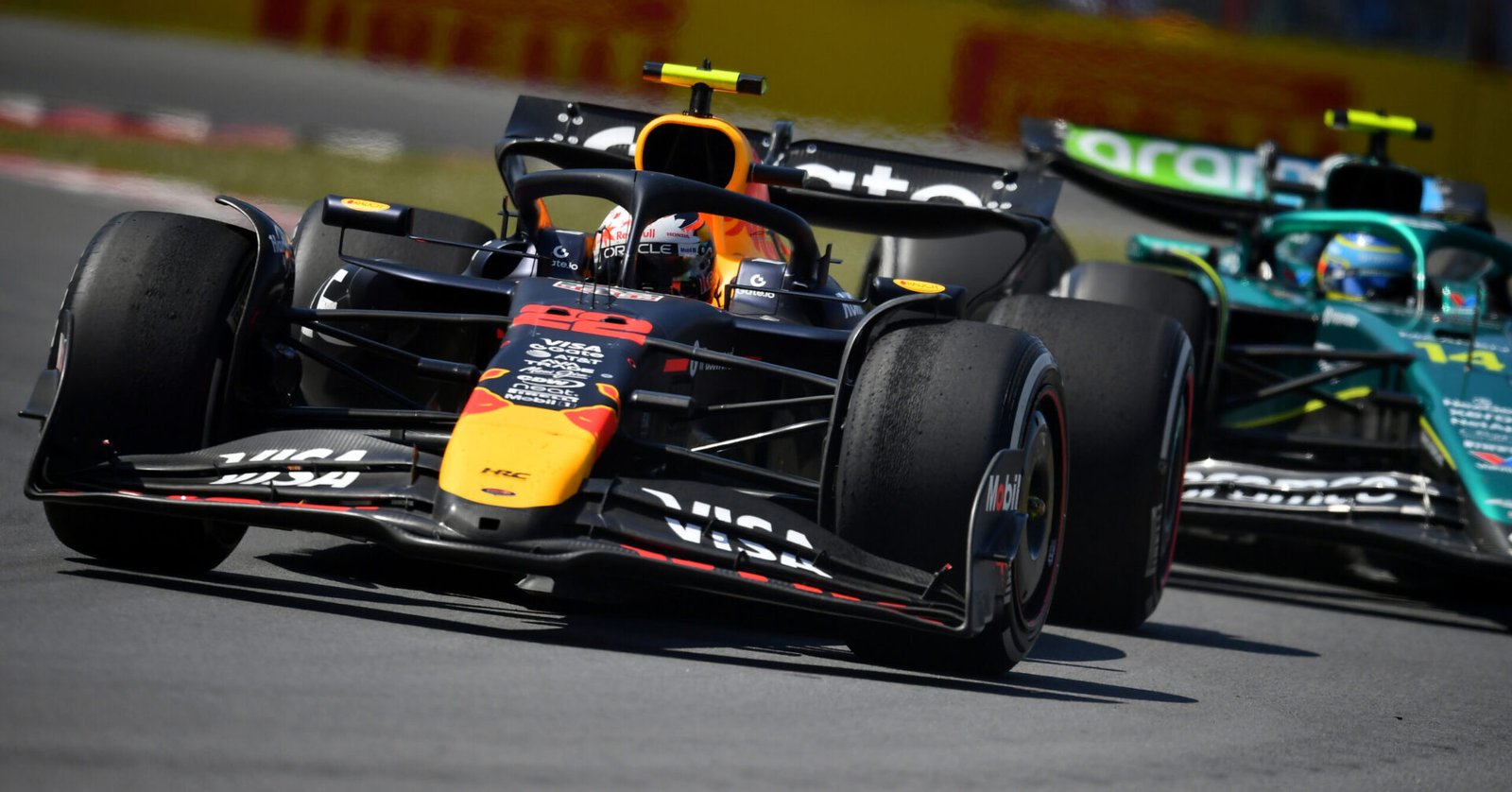The 2026 F1 season is bringing plenty of challenges before it has even arrived, with a whole new set of regulations. Teams are having to essentially redesign their cars completely. However, as an engine supplier, Ford is finding it particularly hard this season to deal with the introduction of the new regulations next season.
This devastating warning from Ford affects Red Bull in particular, with the team from Milton Keynes leaving Honda and starting a new partnership with Ford for the 2026 season. However, in a recent interview, the global director of Ford Performance, Mark Rushbrook, admitted there is some ‘risk’ in the endeavour, but the American outfit is committed to F1 for the long term.
Ford’s Global Director of Performance is positive for 2026
While all 11 teams, with the addition of Cadillac F1, are facing a whole new regulation set for 2026, some teams are having to deal with more difficuties with these changes than others thanks to a change in power unit suppliers, with Red Bull Racing being the most prominent team to make a change, switching from Honda to Ford for 2026.
The team from Milton Keynes already has its power unit supplier in the form of Red Bull Powertrains, which Ford will be joining in order to craft the most state-of-the-art power unit for 2026.
Despite every team effectively starting from scratch with their power units for 2026, there is much greater pressure on Ford with next season being their first endeavour into F1 in decades. A ‘risk’ in which Ford’s global director of performance discussed in a recent interview with Motorsport.com’s Dutch branch.
In the interview, Rushbrook discussed the risk of entering F1 with the new regulations, “Every time there are new rules, especially if it’s for the power unit and the chassis at the same time, there is – I wouldn’t say fear, but there is – a known risk of teams starting it on different levels’. Rushbrook went on to further add, “The main thing is how we balance that again. It’s about how we react as a sport and as opponents.”
Despite the aforementioned discussed risk, the performance director seemed upbeat with how things are currently going, “I am happy with how they are going so far’, speaking in terms of current power unit development. However, he was quick to turn attention back to how difficult some of the new regulations are proving to be for the team.”
Touching on the new regulations surrounding greater electrification and energy deployment that are mandated for 2026, Rushbrook admitted it could create a new ‘lift-and-coast’ form of racing, “That is also part of the process with all the manufacturers, everyone will have their own simulations and we have to ask: what does that mean for the racing and the show we offer fans?” Rushbrook stated.
He further went on to add, “For the sport to be successful, we all have to work together and make sure it is still a good show. Of course, all teams want to win, but together we also share the responsibility to provide good racing. While Ford wants to ensure their partnership with Red Bull does all it can to keep the on-track action as exciting as can be, he wants to make sure all teams share out that responsibility to keep the racing exciting.”
While Rushbrook is keen to not make any definitive statements on the car until we see them in action on track, he did have a respone when asked if he was at all concerned about potentially seeing boring races, as many other have been, to which he resopnded, “I don’t really see it as a fear. We have to see how it turns out and then react based upon that”
He was also keen to touch to touch upon the rumours that the 2026 regulations could be scrapped in favor of V10 engines, something which Ford are not interested in, ‘At the Ford Motor Company we believe that there has to be at least some form of electrification,’ Rushbrook said, “That is also partly what attracted us to the 2026 regulations. It’s about the balance between the internal combustion engine and the electrification.”
Manual Override, Active Aerodynamics and More – How the 2026 Regulations Will Change Formula 1
Rushbrook finished by talking about the balance between the components in the engine: ‘Does that balance have to be fifty-fifty?’ He was keen to ask. ‘No, not necessarily. As long as we see the opportunity to contribute to learn and to use technology for our street cars’
With work on the 2026 cars now well underway and an all-new set of regulations, the world of Formula 1 is keen to see which team will have the edge as we hit the season opener in Melbourne in March next year.












